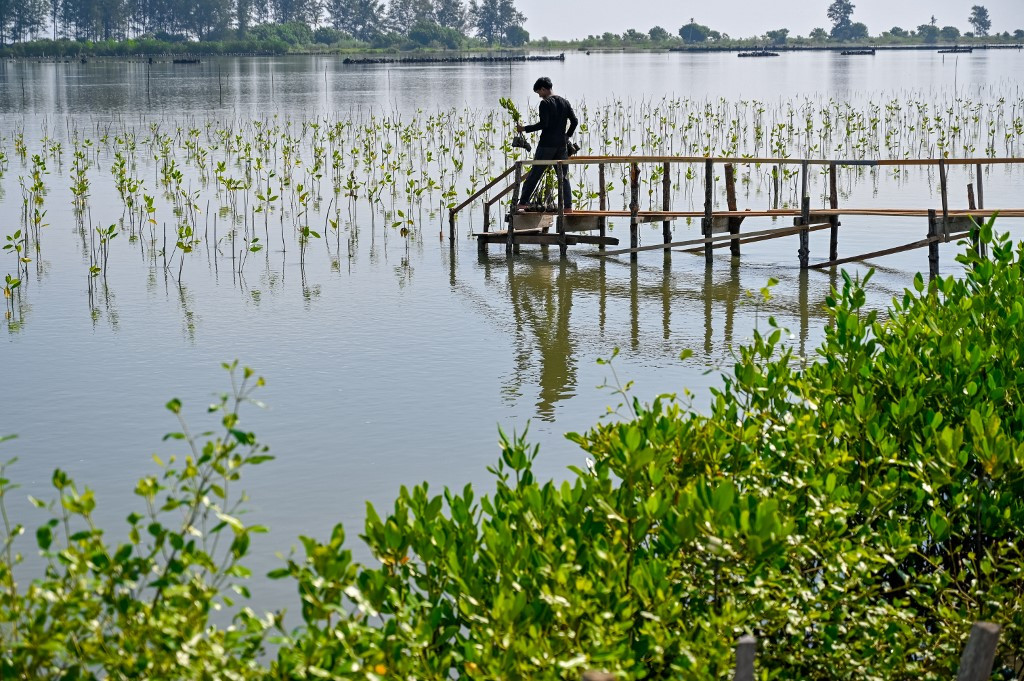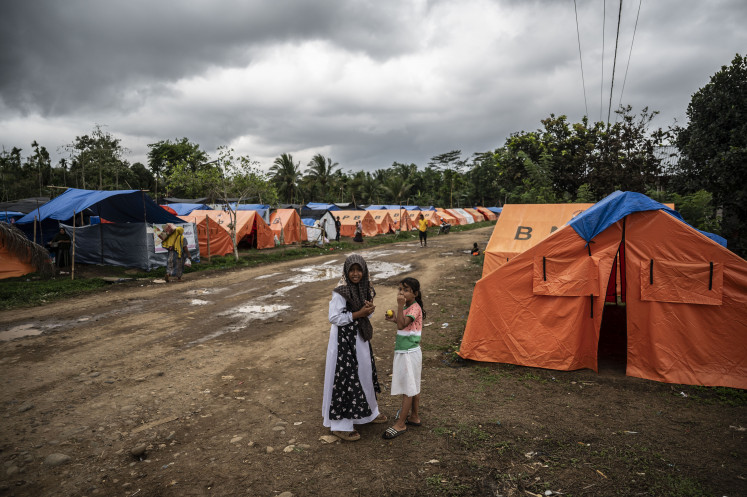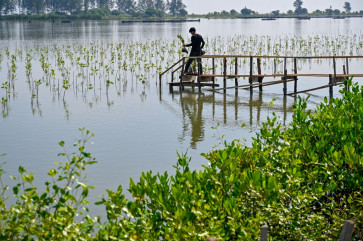Popular Reads
Top Results
Can't find what you're looking for?
View all search resultsPopular Reads
Top Results
Can't find what you're looking for?
View all search resultsCalls grow for govt to protect ocean, small islands at COP30
As the United Nations climate summit enters its second week, calls are mounting for Indonesia to take stronger action to protect small islands and the ocean from the looming threats of global warming and industrial emissions.
Change text size
Gift Premium Articles
to Anyone
A
s the United Nations climate summit enters its second week, calls are mounting for Indonesia to take stronger action to protect small islands and the ocean from the looming threats of global warming and industrial emissions, a commitment which has been absent from the country’s climate agenda.
The Forestry Ministry and the Maritime Affairs and Fisheries Ministry said on the sidelines of a COP30 event in the Brazilian city of Belém on Nov. 13 that Indonesia has restored more than 330,000 hectares of mangrove ecosystem, as part of nature-based solutions to offset emissions.
But according to Forestry Ministry director for mangrove rehabilitation Ristianto Pribadi, Indonesia still requires financing innovations to support climate solutions at a grassroots level.
"Indonesia’s experience shows that conventional financing systems need to be improved to address the challenges of the large-scale restoration of the mangrove ecosystem,” Ristianto said in a press release.
Indonesia is home to more than 3.4 million ha of mangrove ecosystem that account for 23 percent of the world’s mangrove area. Various studies suggest that mangrove ecosystems can store carbon up to four times more than tropical forests, making mangrove restoration in Indonesia, whose coastline is among the world's largest, increasingly crucial.
Mangrove restoration is part of Indonesia’s ongoing efforts to achieve forest and other land use (FOLU) net sink by 2030, a condition when greenhouse gas absorption exceeds emissions.
A 2023 assessment by the Ocean Panel found that ocean-based climate solutions, such as mangrove restoration and marine conservation, could deliver about one-third of the annual greenhouse gas emission cuts needed by 2050 to keep global temperature below 1.5 degrees Celsius. The Ocean Panel is an initiative of heads of state from 18 countries, including Indonesia, who work together to build a sustainable ocean economy.



















